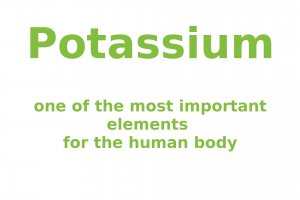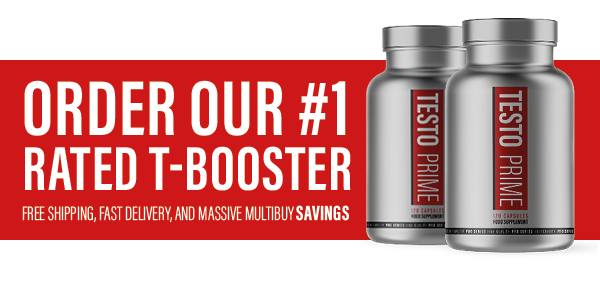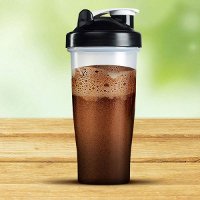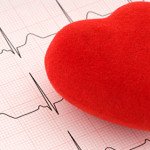Potas (K, Latin. kalium) is one of the most important minerals necessary for maintaining normal human life functions, alongside calcium, iron and magnesium. The deficiency of any of them causes health problems and contributes to health deterioration of well-being. Potassium primary imoortance steps from the fact that it regulates the osmotic balance and water-electrolyte balance of cells (it increases the excretion of water from the body), increases the permeability of cell membranes, increases the hydration of the cytoplasm (reduces its viscosity).
Electrolytes, meaning .. Potassium?
Potassium is an electrolyte, i.e. a positive salt ion, present in almost every part of our body. Its important function is to maintain proper water-electrolyte balance. This is because it dissolves in body fluids. It easily permeates cell membranes, owing to which it is responsible for transporting water and other nutrients to every cell in our body.
Potassium as an electrolyte is involved in the transmission of impulses by the neuron which is important for the proper functioning of the brain. It increases the degree of hydration of cellular colloids and is also responsible for the appropriate tension on the cell membranes. Potassium regulates the acid-alkaline balance – prevents acidification of the body – so common in recent times. In addition, it has a positive effect on the production of insulin, which is extremely important for people ill with diabetes. If you want to examine your level of the most important electrolytes in plasma (potassium, sodium, calcium and magnesium) one should make a blood test called an ionogram.
The impact of potassium on the functioning of the heart and vascular system
One of the most important functions of this precious element is caring for proper muscle contractions, including cardiac muscle. Potassium regulates the functioning of the heart and boosts its performance during physical exercise, and its role depends largely on the amount of sodium in our body. Sodium and potassium are closely related, since the first element is the antagonist of the other, which means that it has an opposite action. Balance between these two electrolytes is essential to maintain the homeostasis of the entire body – explains Katarzyna Barwińska expert Rabenhorst – a well-known producer of natural organic juices, squeezed straight from vegetables and fruits. When the potassium level is regulated, any excess sodium is removed from the body along with the urine. However, when the level of potassium is low, the body defends itself against its additional loss and stops its excretion. The problem is that at the same time sodium is suspended, the level of which increases, and with it, the amount of water in the body. The stored water raises blood pressure, which exceeds the safe value of 120/80 leading to hypertension – adds Katarzyna Barwińska from Rabenhorst. Hypertension is one of the causes of heart disease, heart attacks and strokes, which is why potassium supplementation is so important for the proper functioning of our most important muscle.
Read also:
Many potassium supplements contain inorganic potassium forms, e.g. potassium chloride. This form of potassium does not show high bioavailability. In addition, in the composition of potassium supplements, we often find anti-caking agents, glazing agents, synthetic colors … In comparison, organic potassium contains only natural ingredients. The composition of each Potassium Organic Cheers capsule is: Potassium citrate; rice flour; capsule shell – hydroxypropyl methylcellulose.
Excess – hyperkalemia, Deficiency – hypokalemia.
What is the golden mean?
Hyperkalemia
Hyperkalemia or excess potassium in the body is rare. It may be caused by an overdose of medicines for hypertension or kidney disease. Hyperkalaemia is dangerous – it is manifested by an excessive slowdown in the heart rate and numbness of the hands.
Hypokalemia
Hypokalemia or potassium deficiency is very dangerous. The very low level of this micronutrient threatens the proper functioning of the body and is a life-threatening condition. The loss of electrolytes from the body can occur for various reasons, the most common are acute diarrhea, diuretics and laxatives. Some thyroid diseases also lead to decreased levels of electrolytes, including potassium, to dangerous levels. Hypokalemia is very dangerous – it manifests itself by:
- weakness of the body,
- swelling of the limbs,
- reduction in myocardial contractility,
- weakening skeletal and smooth muscles, muscle cramps,
- increased thirst, polyuria.
Potassium deficiency causes irregular heartbeat leading in extreme cases to ventricular fibrillation.
What should you eat to provide for the appropriate amount of potassium?
Products rich in this element include meat and fish, as well as legumes (peas, beans), besides broccoli, pumpkin and tomatoes. As for fruit, potassium is found in apricots and figs (especially dried), bananas, citrus, and nuts. However, is it enough to eat these products? A well-balanced diet is the basis of good health and well-being. However, when the cramps occur, we suffer stress, or we drink large amounts of coffee, potassium supplementation may prove necessary – explains Katarzyna Barwińska expert Rabenhorst. It is worth reaching for natural supplements in the form of ecological fruit-vegetable juices rich in potassium. You can also prepare delicious fruit cocktails, for example made of bananas and grapes with the addition of beetroot, which also have blood pressure regulating properties.
Summary
Potassium is one of the most important minerals for our life and health. Everybody should take care of its proper level in the body, regardless of age, profession and lifestyle. Certain groups of people should take special care of potassium supplementation because of its significant losses caused by the lifestyle or the period / age they are currently at.
- Athletes lose electrolytes with sweat, and they need potassium to properly regenerate their muscles.
- Breastfeeding women give away many precious minerals together with their milk, so they should additionally systematically check the level of electrolytes using an ionogram.
- Children need the right amount of potassium for proper brain functioning, in order to remember new information more easily and to acquire new knowledge more effectively.
- Elderly people are exposed to excessive urinary calcium excretion due to overly low potassium levels, which may lead to osteoporosis.
References & External links
- Wikipedia: “Potassium“.
- U.S. National Library of Medicine: “Potassium“.
- Vergara, Cecilia, et al. “Calcium-activated potassium channels“. Current opinion in neurobiology 8.3 (1998): 321-329.
- ABC Zdrowie: “Rola potasu w organizmie“.
- Akademia dietetyki: “Potas – rola i znaczenie w naszym organizmie“.
- Poradnik Zdrowie: “Potas – objawy niedoboru i najlepsze źródła w żywności“.
- Medonet: “Niedobór potasu“.
Translations
| The article "Potassium – one of the most important elements for the human body" in other languages | |
|---|---|
| Potas – jeden z najważniejszych pierwiastków dla organizmu człowieka po Polsku: Potas – jeden z najważniejszych pierwiastków dla organizmu człowieka |  |












Comments
“Potassium – one of the most important elements for the human body”